University Essay: Metacognition, Thinking About Thinking
VerifiedAdded on 2022/11/13
|7
|1047
|198
Essay
AI Summary
This essay provides an extended definition of metacognition, exploring the concept of 'thinking about thinking' and its implications for cognitive processes. The essay begins with a general background of metacognition, establishing its origins and significance. The core of the essay is a detailed examination of metacognition, drawing upon three research materials: Penny Bailey's article, Jennifer A. Livingston's overview, and Michael E. Martinez's work. Each section delves into the author's perspective on metacognition, highlighting key ideas such as self-awareness, learning strategies, and the ability to monitor and control one's thought processes. The essay synthesizes these perspectives to offer a comprehensive understanding of metacognition, emphasizing its role in improving thinking, learning, and decision-making. It concludes by reiterating the value of metacognition in enhancing cognitive abilities and promoting effective learning strategies, particularly in educational settings. The essay also touches upon the practical applications of metacognition in everyday life, such as making informed decisions and fostering self-control.
1 out of 7
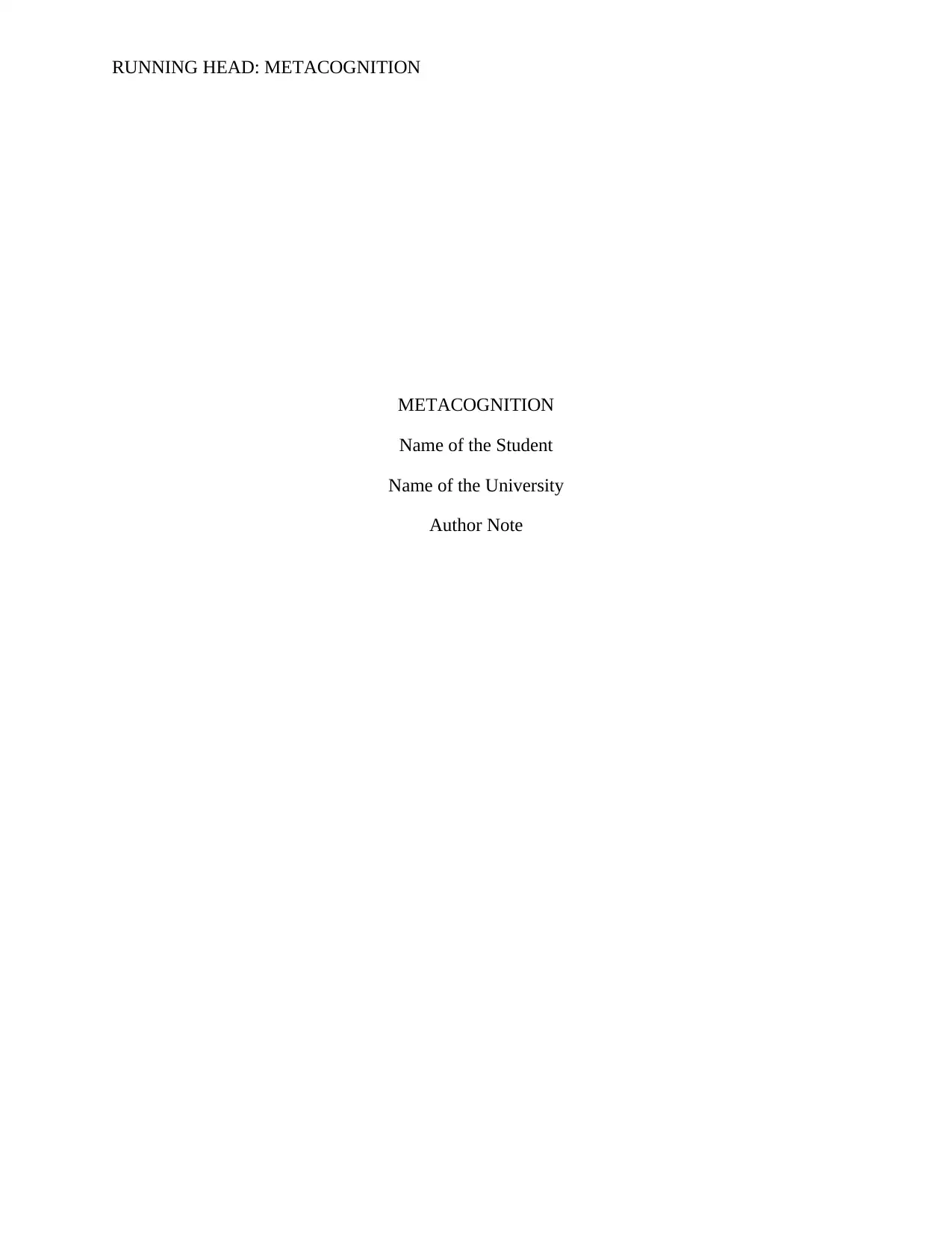
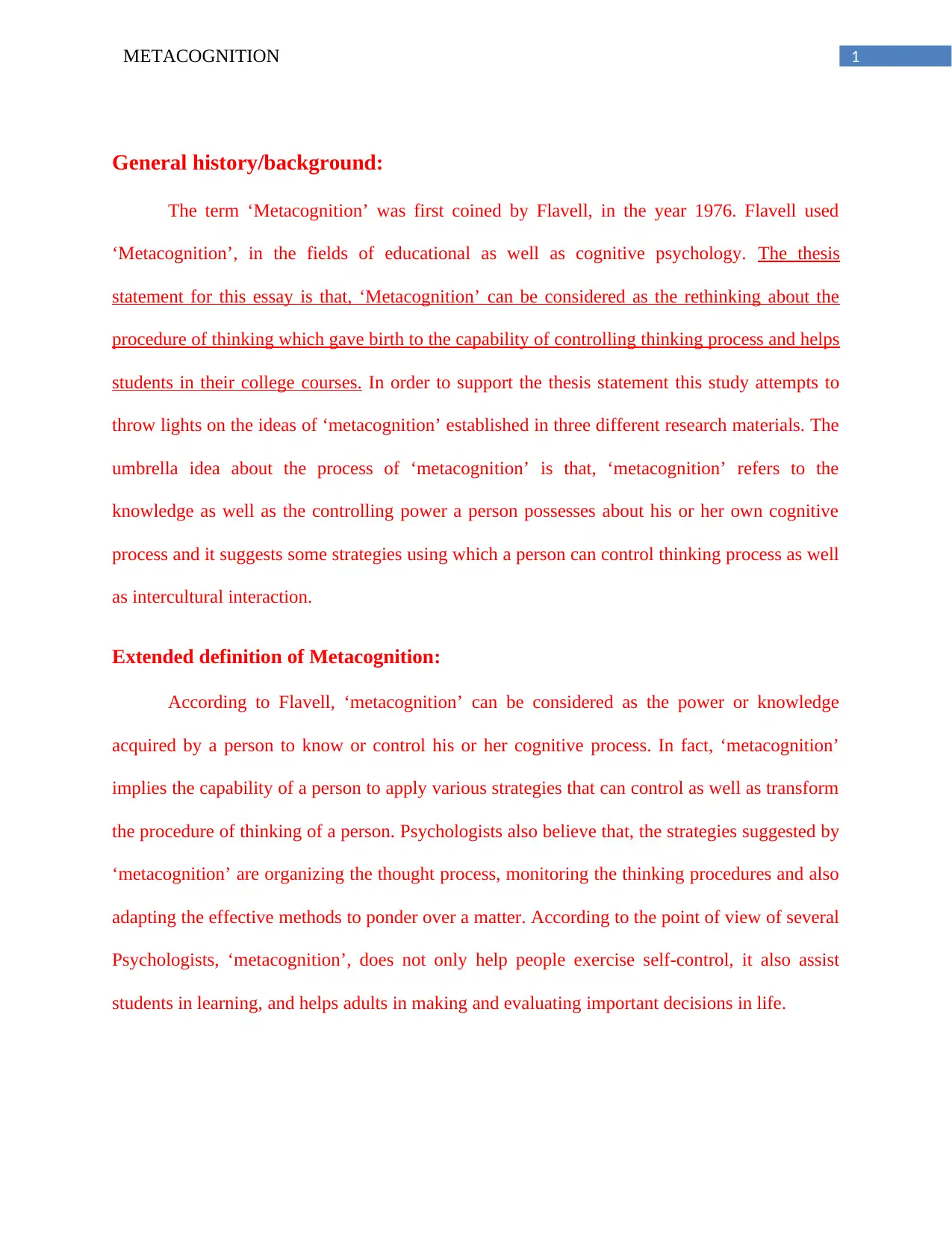
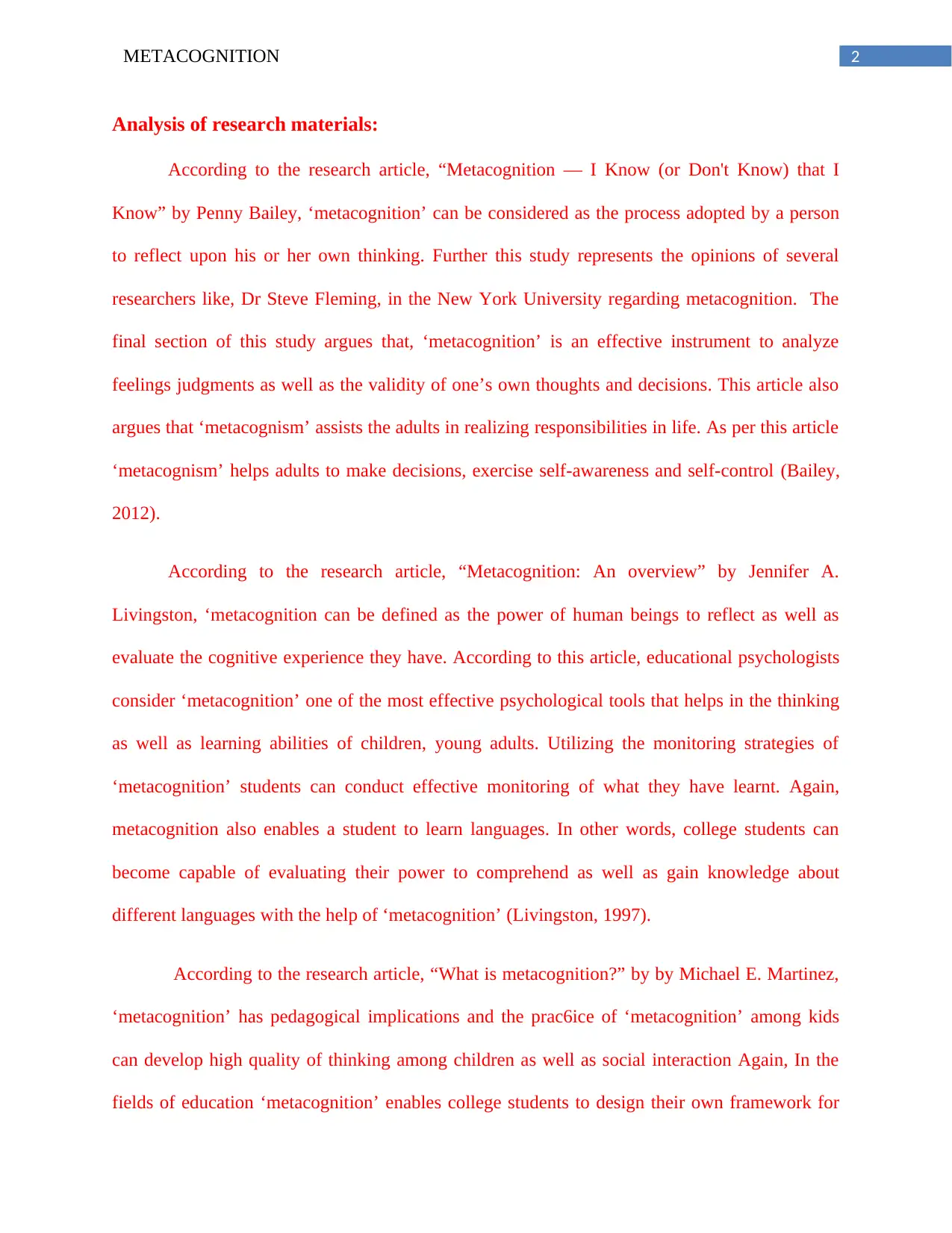

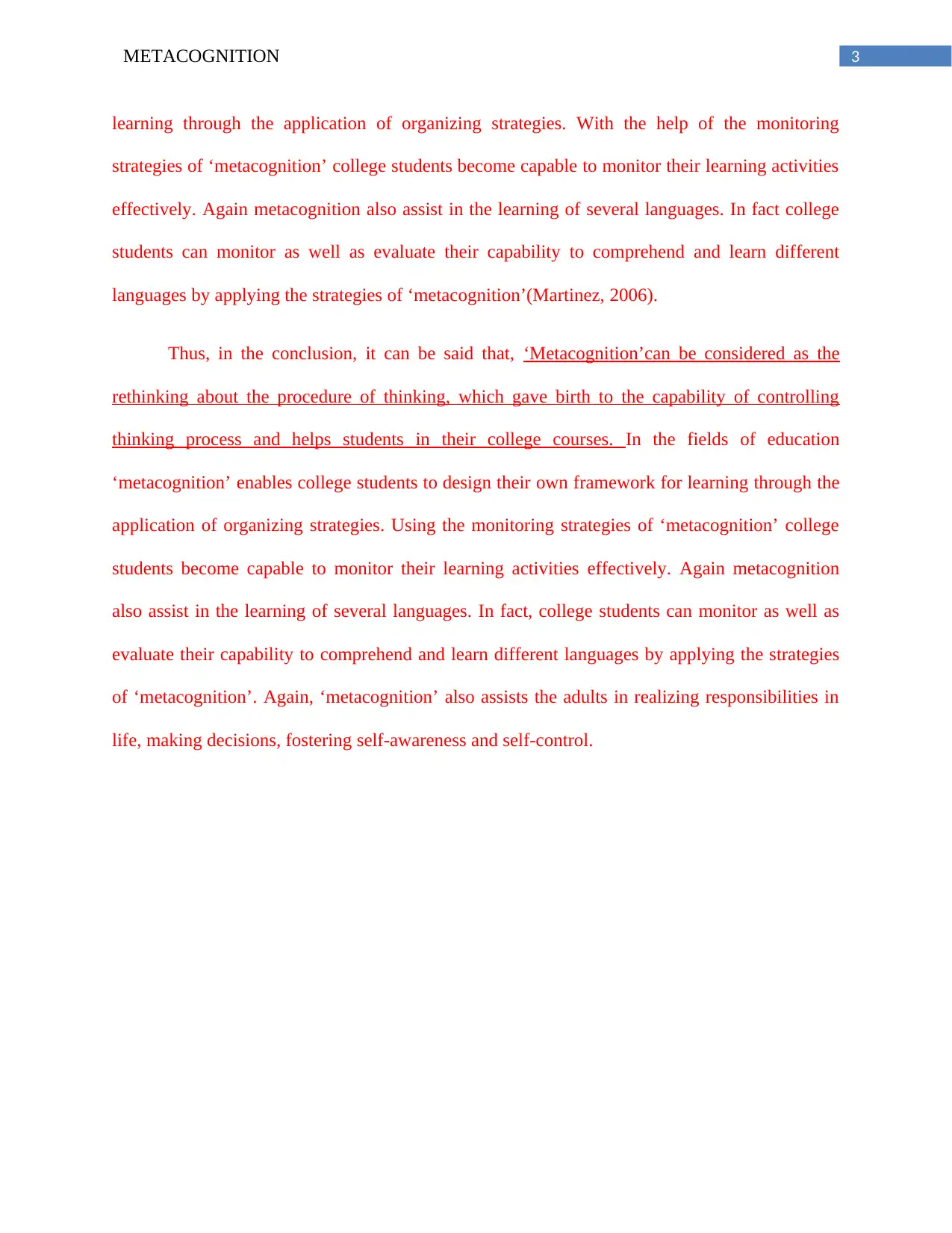
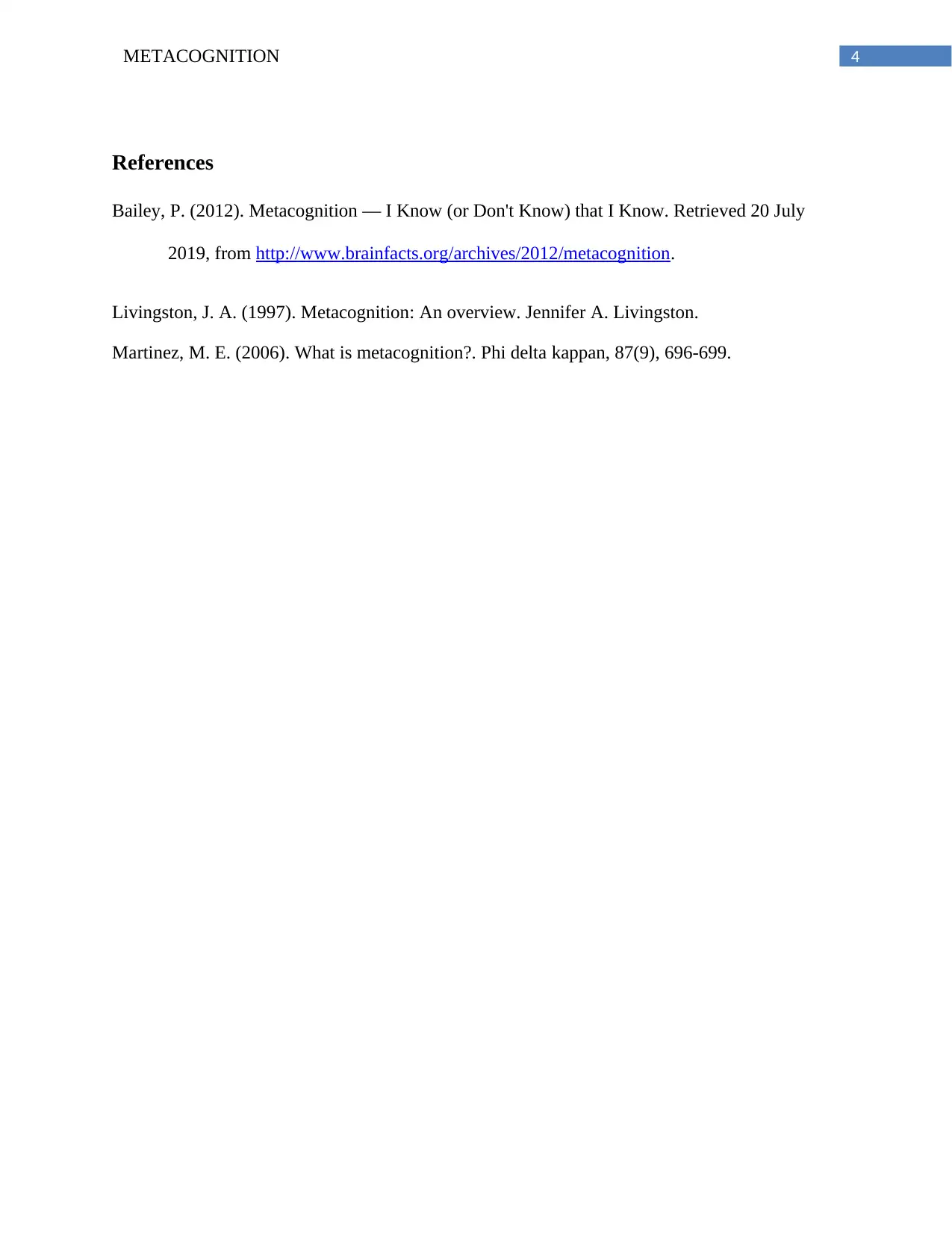
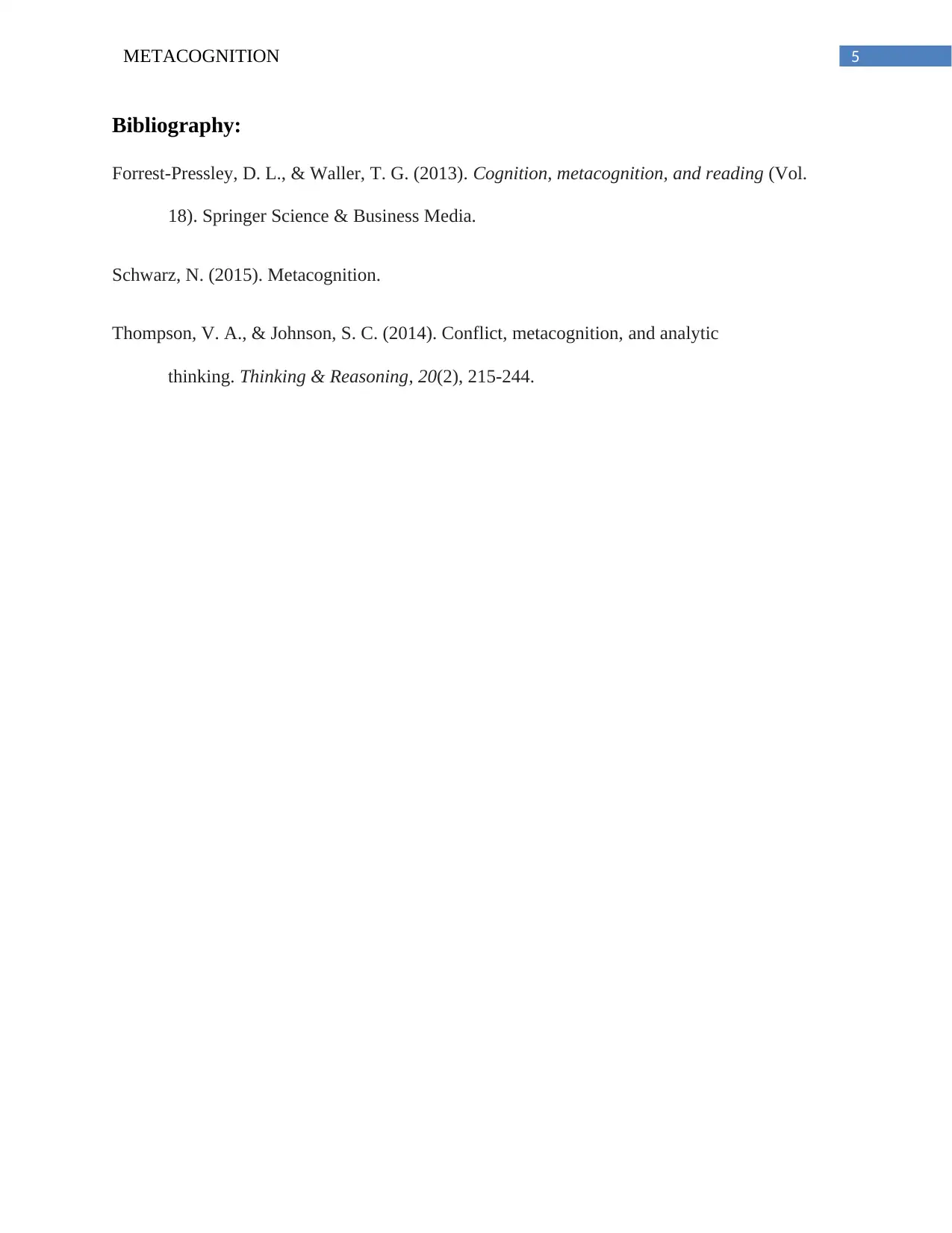







![[object Object]](/_next/static/media/star-bottom.7253800d.svg)